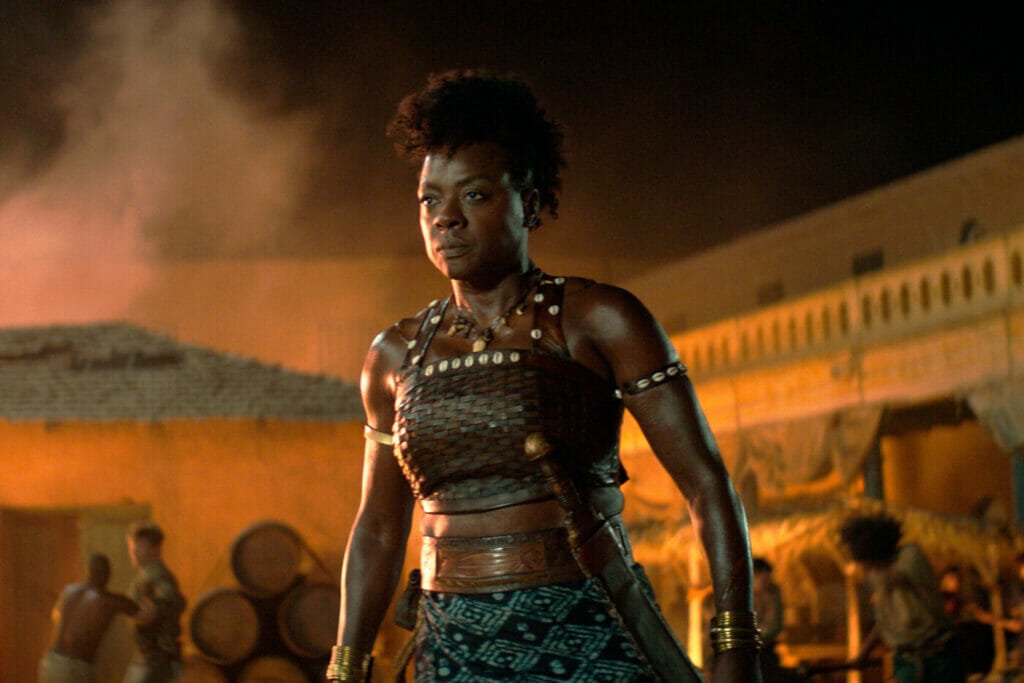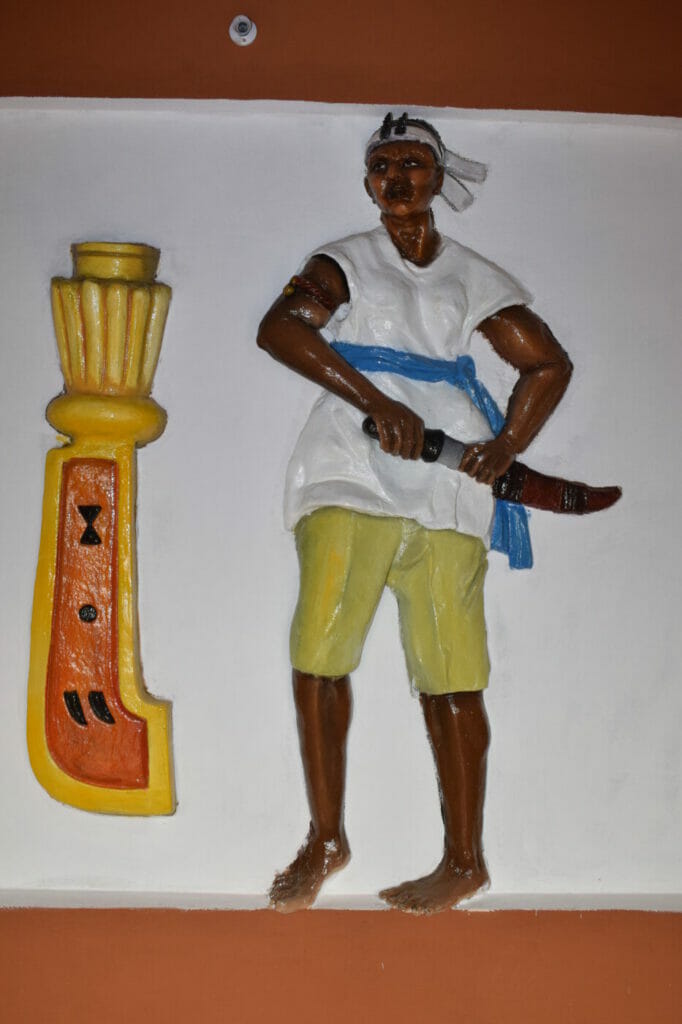“The Woman King” brings African women’s power to the screen

This is carefully written not to ruin the movie for you if you haven’t seen it yet.
BY SOUMANOU SALIFOU (BORN IN DAHOMEY, WITH ANCESTRAL TIES TO A WOMAN WARRIOR)
This is not an expert’s review of the movie “The Woman King” that is now playing across the United States, the potentially blockbuster film set in the powerful pre-colonial state of Danxomê wrongly named Dahomey by the French colonizer who didn’t know better. I am giving my appreciation as a man born in Dahomey before the French territory became independent on paper from France on August 1, 1960.
I can say, without ruining the movie for you, that the famous women warriors of the Danxomê kingdom, brilliantly played by various actresses in “The Woman King,” are at the center of the action in the movie. Back then, as is the case today, a state owed its standing among states in a large part to its military power, the ability to destroy the enemy as fast as needed. Danxomê kings’ readiness to kill to prevail is evident in the genesis of the kingdom’s name. Danxomê, a word in Fon, the language spoken by most people in what is known today as Benin, means “In the belly of Dan.” Dan, a wealthy subject of King Akaba (1685-1708), attempted to kill the king by digging a hole on the road to his house as the king was about to pay him a visit. Once the assassination attempt discovered, the king ordered Dan killed immediately and planted a tree on his tomb, thus the name “In the belly of Dan.”

The agojie, the all-female military regiment of the kingdom, were ferocious fighters dating back to the beginning of the dynasty in 1600 who won many a war for the kings against rival states. They proved a thorn in the side of French soldiers, inflicting unexpected casualties on the French fighters by chopping their heads off like mushrooms during the protracted war that the last precolonial king of the dynasty, Gbêhanzin, fought against France. According to Beninese history professor Jerome Alladayê, during that war, the Danxomê army lost as many as 4,000 fighters, primarily the agodji, in defense of Cana, the spiritual city of the kingdom where all the kingdom’s voodoos are located.
Some of the things I have read and seen on YouTube about the agodjie are flatly wrong. It’s true these brave women could not marry, have sex or have children, but they were not necessarily unattractive or rejected by their families. My grandfather, Saadou Salifou, a Muslim with spiritual power, was a spiritual advisor to King Glele (1858-1889). Very handsome and a first-class womanizer attracted to women like magnet attracts iron, my grandfather seduced one of the king’s agodji, a beautiful woman named Agani who got pregnant by my grandfather and ran away from the palace with him. Obviously, she dared not return. My grandfather who knew better ran down south to a village that became our second family home, in addition to the Danxomê kingdom’s spiritual town, Cana, where he was born and grew up.
Danxomê, one of the dominant military, political and economic powers in most of the space, owed its glory to other women who were not agodjie, but were equally important. The kingdom had one of the best secret services very early on, around 1600 when the dynasty emerged. They were predominantly females recruited among the most beautiful ones in the kingdom and were sent on mission in the neighboring kingdoms to be conquered. Their mission was to seduce the local dignitaries at the highest level and use their presence to develop the map of the kingdom and send it back home.
To bring to the big screen the story of these indomitable female warriors who sometimes brought home the chopped heads of their enemies is a big recognition of our history so often ignored and “tortured” by the white man. It shows our women’s preeminent role in society, even in wars, going back centuries. In the United States, women were not allowed in combat until January 24, 2013.
I strongly recommend this great movie, my choice for “Best Movie of the Year,” with Viola Davis as the obvious winner of the “Academy Award for Best Actress.”
To read more about Danxomê history, click here
______________

Soumanou Salifou is the founder, CEO, publisher and editor of “The African,” the premier African magazine published in the United States, dating back to 1994.

